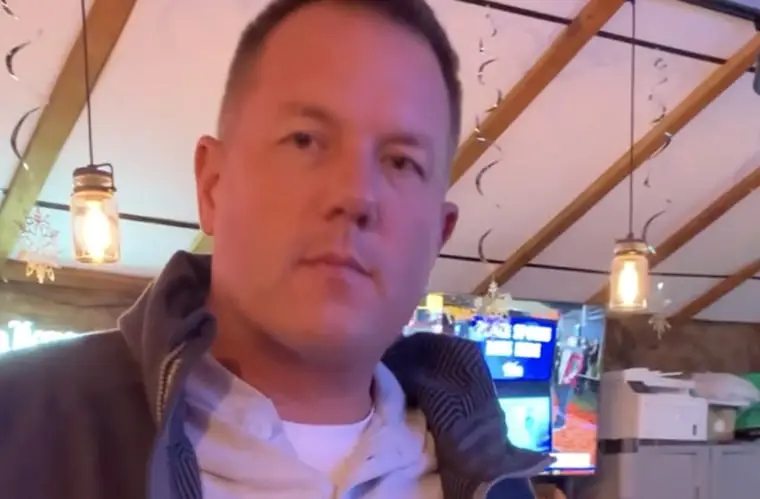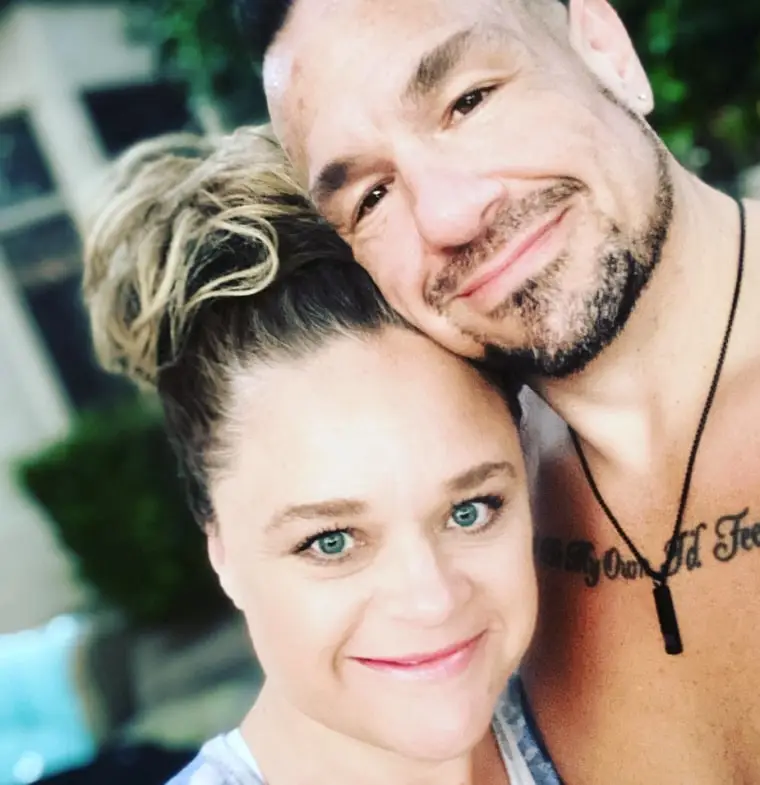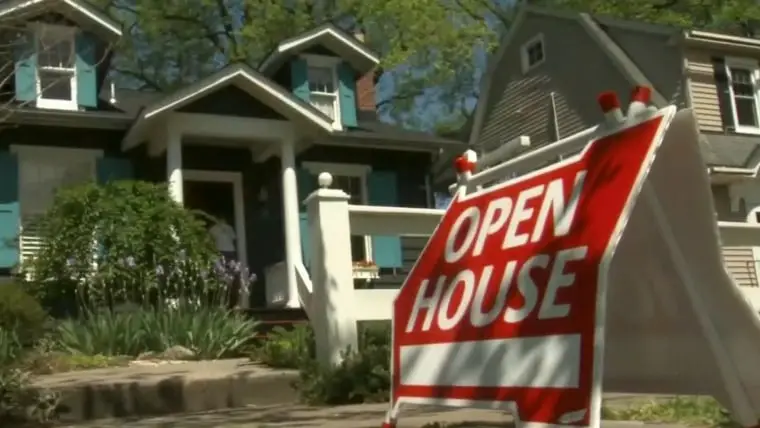
Executives at ‘fintechs’ made hundreds of millions handing out PPP Covid cash, report says
A couple who founded an Arizona-based financial technology firm in the early days of the pandemic raked in an estimated $120 million in processing fees from handing out billions in Paycheck Protection Program loans even though their company did little to police fraud, according to a congressional report released Thursday.
The report from the Select Subcommittee on the Coronavirus Crisis says the “fintech” firm Blueacorn transferred $300 million in profit to its owners but spent less than 1 percent of the fees it collected on fraud prevention, hiring only “one direct employee who assisted with processing PPP loan applications” for the 1.7 million loans it reviewed.
At the same time, even though the program was meant to help small businesses survive the pandemic, the report says smaller loan applicants were disdained by Blueacorn, with staff writing, “delete them,” “Who f------ cares” and, “we’re not the first bank to decline borrowers who deserve to be funded. … they go elsewhere.”
In addition to receiving millions as co-owners, Blueacorn’s Nathan Reis and his wife, Stephanie Hockridge-Reis, applied for and received nearly $300,000 in PPP loans for themselves and their own small businesses, according to the report. The committee flagged that one loan application signed by Nathan Reis in February 2021 shows he identified himself as a Black veteran independent contractor. The report says Reis is not Black or a veteran.

$80 billion in fraud
It’s well known that the $800 billion PPP program was plagued by fraud, with some fraud estimates as high as $80 billion.
DOJ officials have said that PPP prosecutions are an ongoing focus and that some who received loans for as little as $25,000 have been charged with wire fraud.
But now scrutiny has started to shift to some of the larger actors who facilitated the historic funding distribution in the early days of the pandemic when the federal government favored speed over diligence, according to multiple government watchdog reports.
Previous analyses have pointed to the role of fintechs in the fraud, such as a 2021 report from the University of Texas that concluded, “suspicious lending by fintechs in 2021 is four times the level at the start of the program.” Fintechs are tech companies that enable or support banking services.
The new House report bolsters the argument, saying the companies did little to stop the fleecing.
“Even as these companies failed in their administration of the program, they nonetheless accrued massive profits from program administration fees, much of which was pocketed by the companies’ owners and executives,” said Rep. Jim Clyburn, D-S.C., the subcommittee's chairman. “On top of the windfall obtained by enabling others to engage in PPP fraud, some of these individuals may have augmented their ill-gotten gains by engaging in PPP fraud themselves.” The committee sent a letter to the Justice Department Thursday saying "fintech owners tasked with identifying fraudulent PPP applications may have committed fraud themselves." The letter does not name or allege fraud by any specific companies or executives.

The Reises did not immediately respond to a request for comment. But in the materials released by the committee, a lawyer for Blueacorn rejected the idea that the company was lax on fraud controls: “Blueacorn did not simply accept completed applications from any applicant for its partner lenders to approve or deny. Rather, Blueacorn employed a series of fraud prevention practices and technologies throughout its entire adaptive application process that could for various reasons prevent an application from being submitted, could lead to its denial after it was submitted, and, indeed, could even lead to a late stage denial by the lender due to irregularities discovered after the Small Business Administration ('SBA') had already approved the loan.”
Realtors had billions in PPP loans forgiven as housing market boomed
June 4, 202205:13Blueacorn executives prioritized larger loans that were more profitable and labeled them “VIPPP” loans, according to a communication by Hockridge-Reis obtained by the committee. She wrote that “closing these monster loans will get everyone paid.”
The report shows the blinding speed with which money was handed out. In a text message obtained by the committee, Reis commented on his company’s success, noting it made nearly $1.5 billion in less than six months processing PPP loans.

Blueacorn told committee investigators the firm relied on another Arizona company, Elev8 Advisors, started by a couple named Kristen and Adam Spencer to process hundreds of thousands of loans. Though it’s unclear how many people worked for the company, an August 2021 PPP loan forgiveness application obtained by committee staff listed just one employee. According to the committee, Spencer, whose previous experience included running an online clothing shop, told a Blueacorn staffer that “she was the fraud department” of Elev8 Advisors and responsible for screening loans for the federal loan program.
The committee report quotes a former Elev8 worker who said the Spencers hired "at least 30" of their "closest friends and family" members to review loans, including a teenager who had just graduated from high school.
The report cited a text message in which Kristen Spencer described the anticipated windfall from processing PPP loans. “We are doing this for the people we hired to make money,” she wrote. “Our friends and family. That is where the money is going. And it will be life changing money for anyone who does it.” And, she added, according to the committee, “while [money is] not everything — it’s a f------ lot.”
In a statement, Abbe Lowell, an attorney for the Spencers, said, “The Subcommittee’s report is just the latest example of a congressional committee having a conclusion first and then manipulating the facts and evidence to support what it decided before it even looked for the truth. It is now obvious with the release of this report that the Subcommittee’s process misled elev8 and its owners, who were led to believe that their forthright responses would be met with an accurate reporting of the facts and an opportunity to respond to any report before it was released to media. … elev8 did not engage in any self-dealing and their own loans were completely appropriate and would pass muster in any objective review.”
In July 2021, two months after the last PPP loans went out the door, the Spencers bought an $8 million, 10,975-square-foot mansion, according to local property records.

Blaming the government
The actions of other fintech firms such as Kabbage Inc. are also examined in the report.
Police: Suspects used PPP loan to fund murder-for-hire of Florida TSA agent
Feb. 16, 202201:56In an email from September 2020 obtained by committee staff, Kabbage’s head of policy blamed the federal government and the Small Business Administration that administered the program for the lack of due diligence. “At the end of the day,” said the email, “it’s the SBA’s s----- rules that created fraud, not [Kabbage].”
Kabbage filed for bankruptcy in October. In June, Kabbage revealed in a court filing that the company is facing a False Claims Act investigation by federal prosecutors in Houston and Boston, which Kabbage’s attorneys said is being overseen by the DOJ’s civil division in Washington.








